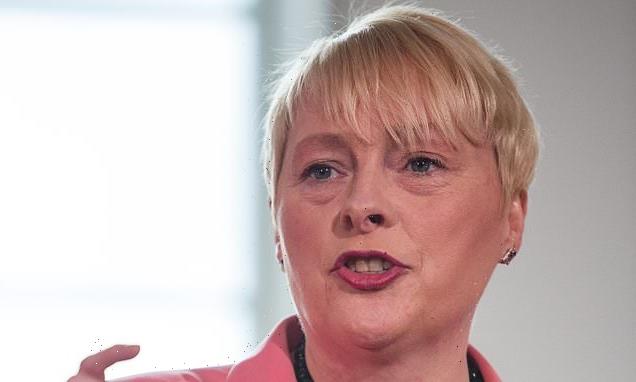Economist explains why Germany is still using Russian gas
We use your sign-up to provide content in ways you’ve consented to and to improve our understanding of you. This may include adverts from us and 3rd parties based on our understanding. You can unsubscribe at any time. More info
Despite applying harsh sanctions on Moscow’s economy since the Russian President’s invasion of Ukraine on February 24, energy imports from Russia have been largely allowed to continue as normal. This is because Europe is heavily dependent on Russia for its energy supply, relying on Moscow for 45 percent of its gas supply in 2021. This reliance on Putin’s exports have come at a cost, as experts warn that revenues generated from Russian oil and gas sales have bankrolled Russia’s invasion of Ukraine.
According to a new detailed tracker of Russian oil, gas and coal shipments and pipeline exports by the Centre for Research on Energy and Clean Air (CREA), since Russia’s invasion, export revenues of Russian fossil fuels have soared by €62 billion (£52 billion) in the first two months of the country’s war against Ukraine.
This is the first full data set that tracks Russia’s fossil fuel exports at a granular level, down to which ports received fossil fuel shipments and when.
Bernice Lee, Research Director, Chatham House said: “Two months after Putin invaded Ukraine, Germany is still funding the Russian war chest to the tune of EUR4.5 million a month.
“Berlin is the largest buyer of Russian fossil fuels.


“The world is looking to Germany to demonstrate strength and determination towards Russia, but instead they’re bankrolling the war and blocking a European embargo on Russian oil.
“Germany touts itself as a global leader but at this juncture that means weaning itself off Russian energy as soon as possible, making its renewable energy plans more concrete and ensuring its G7 scales up clean energy finance globally.
“This – as Chancellor Scholz’s first test of leadership – is going to be a heavy but necessary lift. All eyes are on him”
This comes as reports of the atrocities in Bucha by Russian forces have given European countries a new drive to ban Russian energy.

In its fifth round of sanctions, the EU banned the imports of Russian coal.
While the cheapest of the energy imports, Russian coal exports to Europe still cost the bloc a staggering €5.2billion (£4.3billion) in 2021.
With a ban on coal in place, the EU is expected to try and place limitations on the imports of Russian oil and natural gas in during a meeting on 30-31 May.
Anna Ackermann, climate and energy policy specialist, founding member of Ukrainian NGO Centre for Environmental Initiatives “Ecoaction” said: “Russia’s war against Ukraine is largely funded by the aggressor’s coal, oil and gas exports.
DON’T MISS:
Russia’s ‘only oil pipeline to EU’ in flames – 3 countries face crisis [REVEAL]
Forget Satan 2! US £157bn project can wipe out Putin’s missile [ANALYSIS]
Putin facing brink: Exiled oligarch says EU sanctions would be ‘blow’ [INSIGHT]


“Those same resources are the main cause of another global danger – climate change. This is a historical moment.
“While Russia is trying to find new buyers for their fossil fuel exports to keep financing their military ambitions and killings of civilians, we have an opportunity as a global community to recognise that fossil fuels create both war and climate destruction. T
“Today we can once and for all make a crucial step by choosing energy security and resilience through advancing the clean energy transition”.
Source: Read Full Article


